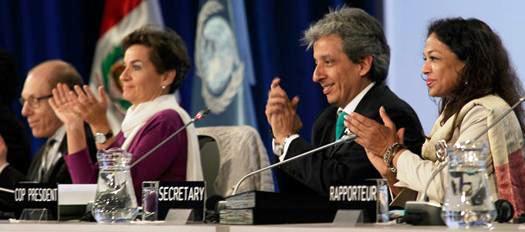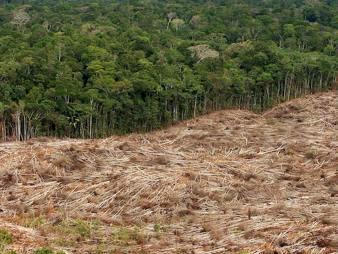 Cincinnati – The Procter & Gamble Company announced an advancement in its global sustainability goals on April 8, declaring a commitment to no deforestation in its palm oil supply chain by improving practices with all its suppliers, including small local farmers, to ensure protection of forests.
Cincinnati – The Procter & Gamble Company announced an advancement in its global sustainability goals on April 8, declaring a commitment to no deforestation in its palm oil supply chain by improving practices with all its suppliers, including small local farmers, to ensure protection of forests.
“P&G’s commitment to no deforestation in its palm supply chain is unequivocal. Our aim is to develop effective long-term solutions to the complicated issue of palm oil sustainability. We are committed to driving positive change throughout the entire supply chain, not just for us, but for the industry and for the small farmers who depend on this crop,” said Len Sauers, P&G Vice President of Global Sustainability.
Already, 100% of P&G’s purchased palm oil is certified by Roundtable for Sustainable Palm Oil (RSPO) standards. P&G is a member of the RSPO, and supports the criteria it has established for sustainable palm oil. The new goals go beyond RSPO certification, with the objective of developing reliable, effective and lasting sustainable practices by all palm suppliers.
P&G’s new goals call for ensuring no deforestation in its entire palm supply chain. Specific commitments include:
1. Establish traceability of palm oil and palm kernel oil to supplier mills by December 31, 2015.
2. Ensuring no deforestation in the palm supply chain to plantations by 2020.
- For palm oil, require suppliers to submit plans by December 31, 2015, that demonstrate how they will ensure no deforestation in the supply chain for their mills by 2020.
- For palm kernel oil, begin investing in and working with small farmers, with the aim of improving their practices to ensure no deforestation in the supply chain by 2020.
3. Working with suppliers, industry peers, NGOs, academic experts and other stakeholders to promote consistent industry standards and practices for sustainable palm oil sourcing.
4. Continuing to support universal human rights as outlined in P&G’s existing Sustainability Guidelines for Suppliers, and to support the rights of indigenous peoples.
5. Reporting annually on progress toward achieving these goals.
“These goals go beyond our current commitments. P&G will continue to work with each of our suppliers, and we will invest in and work directly with small local farmers, where much of our supply comes from, to improve their production practices,” added Len Sauers. “This is the most complicated aspect of the palm supply chain, where P&G believes we can make a significant and lasting impact.”
To learn more about P&G’s Palm Oil Commitment click here: P&G Sustainability/Palm Oil
Source: P&G.
About Procter & Gamble
Procter & Gamble Company (NYSE:PG), also known as P&G, is an American multinational consumer goods company headquartered in Cincinnati, Ohio, United States, which serves approximately 4.8 billion people around the world with its brands. The Company has one of the strongest portfolios of trusted, quality, leadership brands, including Ace®, Always®, Ambi Pur®, Ariel®, Bounty®, Charmin®, Crest®, Dawn®, Downy®, Duracell®, Fairy®, Febreze®, Fusion®, Gain®, Gillette®, Head & Shoulders®, Iams®, Lenor®, Mach3®, Olay®, Oral-B®, Pampers®, Pantene®, Prestobarba®, SK-II®, Tide®, Vicks®, Wella®, and Whisper®. The P&G community includes operations in approximately 70 countries worldwide. For more information, visit www.pg.com.















